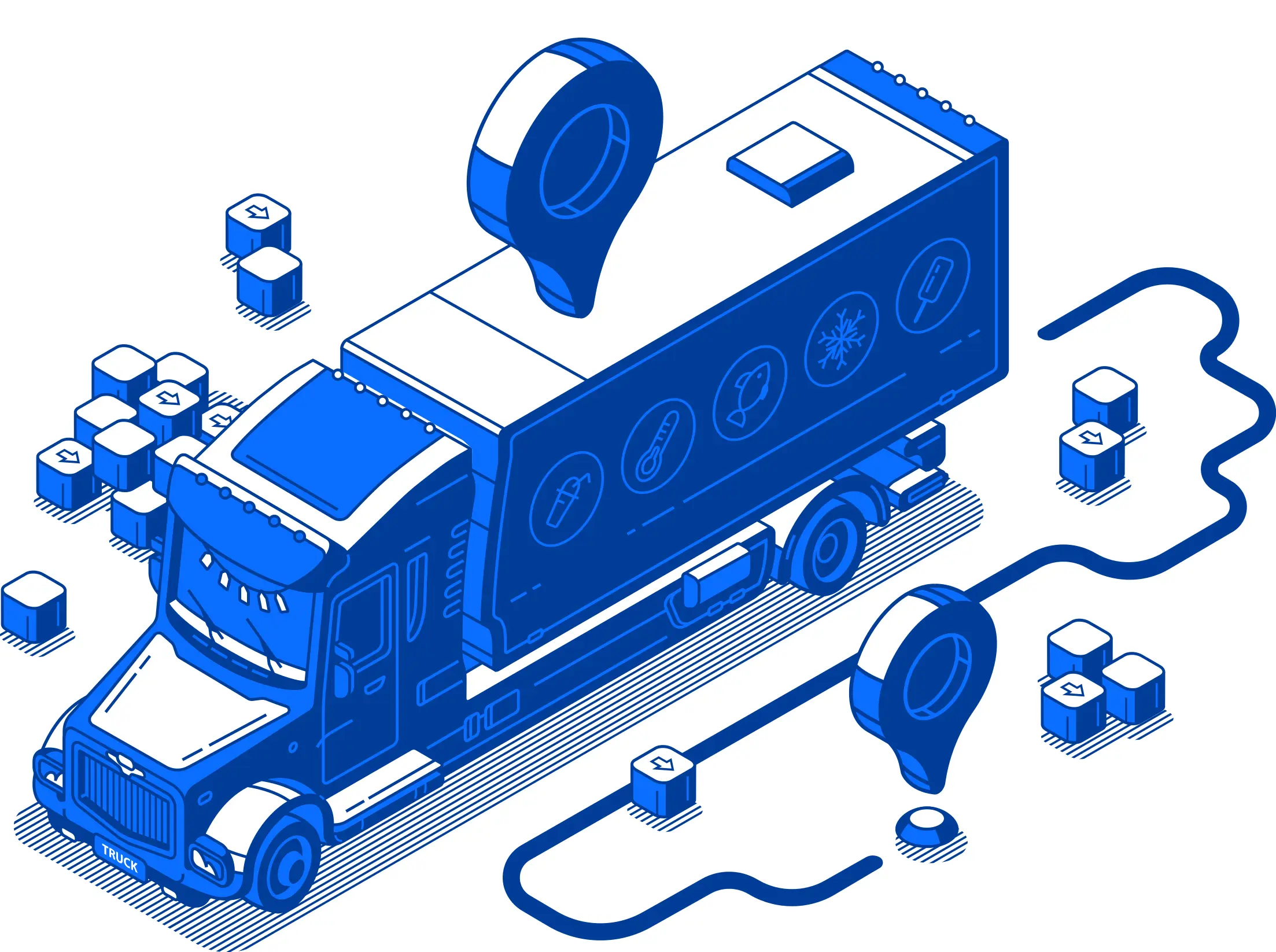Findings show that nine out of 10 new owner-operators and small trucking companies fail. Even experienced trucking company owners struggle. Consider RBX, Inc., a carrier that struggled financially and filed for bankruptcy after 40 years in business because its debts exceeded its $50,000 in assets.
Among the common reasons for trucking company failures are:
- Lack of a comprehensive business plan
- Ineffective budgeting of expenses and profits
- Inexperience in running a business
- DOT violations and hefty fines
- Lack of a strong cash flow
- Growing too quickly
Everyone wants their business to grow, but when that growth is too rapid, it’s a leading reason for failure. It’s important to avoid the common pitfalls and use freight factoring to help your trucking company thrive.
The Common Pitfalls of Expanding Too Fast
What are the most common pitfalls that owner-operators and small trucking companies experience? Explore them and see how many you’re at risk of experiencing.
1. Insufficient Capital for Business Operations
Capital is a key player in operating a trucking company. The cost of new trucks and trailers, or even used ones, is high. Expanding your fleet requires the capital for those new truck and trailer purchases. The average cost of a new 18-wheeler can be as high as $250,000. Trailers cost as much as $80,000.
Upfront costs are just a small part of a comprehensive picture. You also have the expenses that come with owning trucks and trailers. You have to keep them insured. Maintenance costs are high, and the farther a truck travels, the more often maintenance is required. Plus, you have the cost of fuel.
Fuel costs are not much lower than last year. The U.S. Energy Information Administration lists the average cost per gallon in the U.S. at $3.168, down only 0.012% from last year. The price per gallon does vary depending on where you drive.
- Oregon and Washington – 0.34% increase at $4.063 per gallon
- Rocky Mountains – 0.22% decrease at $3.18 per gallon
- The Gulf Coast – 0.046% increase over last year at $2.744 per gallon
Those are just examples of gas prices. Diesel prices are higher than last year in all areas of the U.S. The average cost of a gallon of diesel is $3.739 per gallon, up 0.213%. The highest prices are in:
- Central Atlantic at $3.92 per gallon
- New England at $3.961 per gallon
- West Coast at $4.523 per gallon
If you’re not planning for fuel cost increases, you end up struggling and need to take from cash reserves to cover the excess.
Some tariffs have a trickle-down effect. Someone must pay the tariffs. When goods come into the U.S. by boat or over the border, the tariff is charged. The company importing the product needs to pay that tariff, and that means the importer now has less money.
To cover their expenses, they raise prices. They may also negotiate lower per-mile rates with trucking companies. If consumers stop purchasing items because of the higher cost of tariffs, the need for transportation for those goods declines. With more competition for hauls, you have to price competitively, which also impacts your profits.
2. High Levels of Debt
While the Federal Reserve cut interest rates by 0.25% for the first time in 2025, interest rates are still alarmingly high. NerdWallet reports average business loan rates range from 6.6% to 11.5%, but that’s if you have good credit.
- Business lines of credit range from 10% to 99%
- Equipment financing ranges from 4% to 45%
- Online term business loans range from 14% to 99%
- SBA loans as high as 15.25%
Bankrate provides what the average lender is charging for commercial truck loans. Expect to pay 6% to 35%. Plus, many banks require a down payment of at least 10%. If you’re purchasing a new truck for $150,000, you need $15,000 up front just to get financing.
Suppose you’re buying that new truck and have the down payment. A 10% equipment loan interest rate and 72-month loan leads to payments of over $2,500 a month. If you extend it to 84 months, payments are still over $2,200 per month. In slower times of year when work is scarce, a truck payment can be difficult to budget.
Buying new equipment without taking out loans is always better. While you have a larger upfront expense, the amount you save in interest is incredible. Plus, you don’t have payments to handle in the slow months.
3. The Strain on Your Business From Financial Insecurity
High debt and rising costs put a tremendous strain on a business. If money is tight, you can’t pay vendors and even employees on time. If you’re late with payroll, it can be costly as state fines come into play. Vendors may decide to send you to collections and refuse to work with you again.
When you’re short on funds, you may decide to delay payments on essential things like:
- Insurance on your trucks and trailers
- Employee benefits like health insurance
- Certifications and licenses
- Traffic fines
You might decide to skip truck maintenance or delay a recommended repair, leading to an accident that goes on your FMCSA record. All of that can lead to problems keeping your business operational.
It’s also a problem when you can’t pay your employees. Your drivers may quit, leaving you with no one to do the work. Loads are late, which makes customers unhappy. You may find yourself having to refuse a higher-paying job because you simply cannot line up a driver to do the work.
Freight Factoring Provides Solutions to Those Pitfalls
Freight factoring is a financial option where you sell unpaid invoices to a factor. You sell at a discount, and you get paid immediately in return. It makes it easier to keep up with bills and employee payments.
With a freight factoring partnership, imagine you complete a delivery for a client. They owe you $10,000, but they always wait until the last day of the month to pay you.
Meanwhile, your trucks need fuel. Your drivers need their wages. You have bills to pay for insurance, electricity, mobile phones, route planning software, truck loans, heating fuel for your office, truck maintenance, and many other expenses.
When you pay late, you’re hit with late fees, so you end up losing money. It also damages your credit rating, which leads to higher interest rates and loss of trust from potential new clients.
Instead of losing profits to late fees, get paid immediately. You complete the run, send the payment request and required documents to the freight factoring company, and get paid within two business days. Saint John Capital offers same-day payments. You never have to wait to get funds to keep your business going.
How can freight factoring help with the common pitfalls? Freight factoring provides four major benefits.
- Easing Cash Flow Issues – Get paid the same day and always have funds available to cover bills and emergency expenses.
- Funding Expansion Without Taking on Debt – When you’re paying bills on time, you avoid late fees and penalties. You grow your capital and can save up to pay for new trucks without needing a loan.
- Mitigating Risk – Non-recourse factoring arrangements protect a broker or shipper’s unexpected closure or bankruptcy. It’s insurance against unpaid invoices.
- Aiding Sustainable Growth – You can grow your company slowly with the guidance of experts with decades of experience in the trucking industry.
Saint John Capital is here to help you grow your trucking company at a steady, manageable pace. Our advisors help you understand the best freight factoring arrangement for your company and offer the lowest factoring rates in the industry, so you get paid quickly without paying a high factoring fee. Sign up or contact us today.











